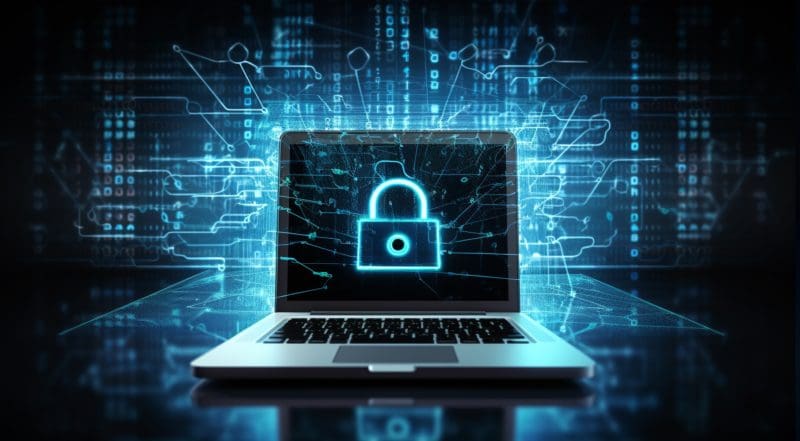
In the wake of the 2024 U.S. presidential election, a coalition of cybersecurity experts has raised significant concerns regarding potential large-scale election fraud favoring Donald Trump.
Their analysis highlights substantial anomalies in voting patterns across key swing states, suggesting possible manipulation of election software. These concerns are not isolated incidents; they represent a growing body of evidence that points towards systemic vulnerabilities within the voting process that may have been exploited to alter outcomes in crucial battleground states.
Anomalous Voting Patterns
A central point of concern is the surge in “bullet ballots”—ballots where voters select only a presidential candidate, leaving other races blank. Historically, such ballots constitute about 1% of total votes. However, in the 2024 election, swing states exhibited unprecedented spikes in bullet ballots for Trump:
- Arizona: 7.2%
- Nevada: 5.5%
- North Carolina: 11%
In contrast, neighboring states like Oregon, Utah, and Idaho reported bullet ballot rates below 0.05%. These discrepancies are particularly concentrated in specific counties, such as Maricopa County in Arizona, which accounted for nearly all of the state’s bullet ballots. Experts point out that these unusual trends could indicate targeted manipulation designed to favor a specific candidate, as the patterns do not match typical voter behavior seen in similar states or prior elections.
Further complicating the situation, voter interviews and exit polling data from these counties have revealed discrepancies between voter-reported choices and the final tallies. Many voters claimed they had filled out the entire ballot, including local races, but the records show only a presidential selection. This divergence has raised questions about whether ballot data may have been altered during the counting process, either through software tampering or other unauthorized means.
Potential Software Compromise
Experts suggest that these irregularities may stem from unauthorized access to election software. Following the 2020 election, incidents were reported where individuals breached polling stations and downloaded voting software, subsequently making it publicly accessible on platforms like GitHub. This exposure potentially allowed malicious actors to manipulate vote counts in targeted precincts. Given the complexity and scope of modern election systems, even a small breach could have far-reaching consequences if key vulnerabilities are exploited in the right places.
This concern is amplified by the fact that some voting software vendors have previously faced scrutiny over security flaws. For instance, vulnerabilities in the software used by several swing states were identified as early as 2018, and while steps were taken to address these issues, experts argue that not enough was done to secure the entire infrastructure. The availability of voting software on public platforms has compounded these risks, offering malicious actors both the tools and the opportunity to exploit weaknesses in the system. The possibility of widespread manipulation has led many to call for stronger regulations and oversight of election technology providers to prevent similar incidents in the future.
Calls for Action
In response to these findings, cybersecurity professionals have issued open letters advocating for immediate hand recounts in affected precincts. They argue that such measures are essential to verify the authenticity of ballots and uphold the integrity of the electoral process. A comprehensive recount, they suggest, would not only help to identify any discrepancies but also restore public trust in the election results. Without such steps, the legitimacy of the entire electoral process could be called into question.
Additionally, some experts have called for forensic audits of voting machines and election software to determine whether unauthorized changes were made. Forensic audits could provide crucial insights into whether the irregularities observed are the result of malicious activity or systemic flaws in the software. There is also a growing call for legislation that mandates stronger cybersecurity measures for voting systems, including end-to-end encryption and regular independent audits to ensure system integrity.
Public and Political Reactions
The allegations have sparked a polarized response. Some media outlets have dismissed the concerns as unfounded conspiracy theories, while others emphasize the need for thorough investigations. Notably, Elon Musk has publicly criticized those questioning the election’s legitimacy, warning of potential legal repercussions for spreading what he terms as misinformation. This stance has fueled debate over the balance between ensuring election security and preventing the spread of unfounded claims that could undermine democracy.
On the other hand, several political figures and advocacy groups have supported the cybersecurity experts’ call for recounts and audits, arguing that transparency is essential for maintaining the integrity of the electoral process. Public opinion appears to be divided, with some citizens demanding more robust investigations to clear any doubts about the legitimacy of the election, while others view the allegations as a dangerous attempt to delegitimize a democratic outcome. Social media platforms have also become battlegrounds for debate, with hashtags calling for recounts trending alongside those denouncing the claims as baseless.
Conclusion
The assertions of election tampering underscore the critical importance of robust cybersecurity measures in safeguarding democratic institutions. As the nation grapples with these allegations, the call for transparency and accountability in the electoral process remains paramount. Strengthening the security of voting systems is not just about preventing fraud; it is about ensuring that every citizen’s voice is heard and that the outcome of elections accurately reflects the will of the people. Moving forward, a comprehensive approach that includes stronger regulations, independent audits, and improved public awareness will be essential to protect the sanctity of the democratic process. The lessons learned from the 2024 election must inform future reforms to prevent similar issues from arising and to reassure the public that their votes are secure and counted accurately.
